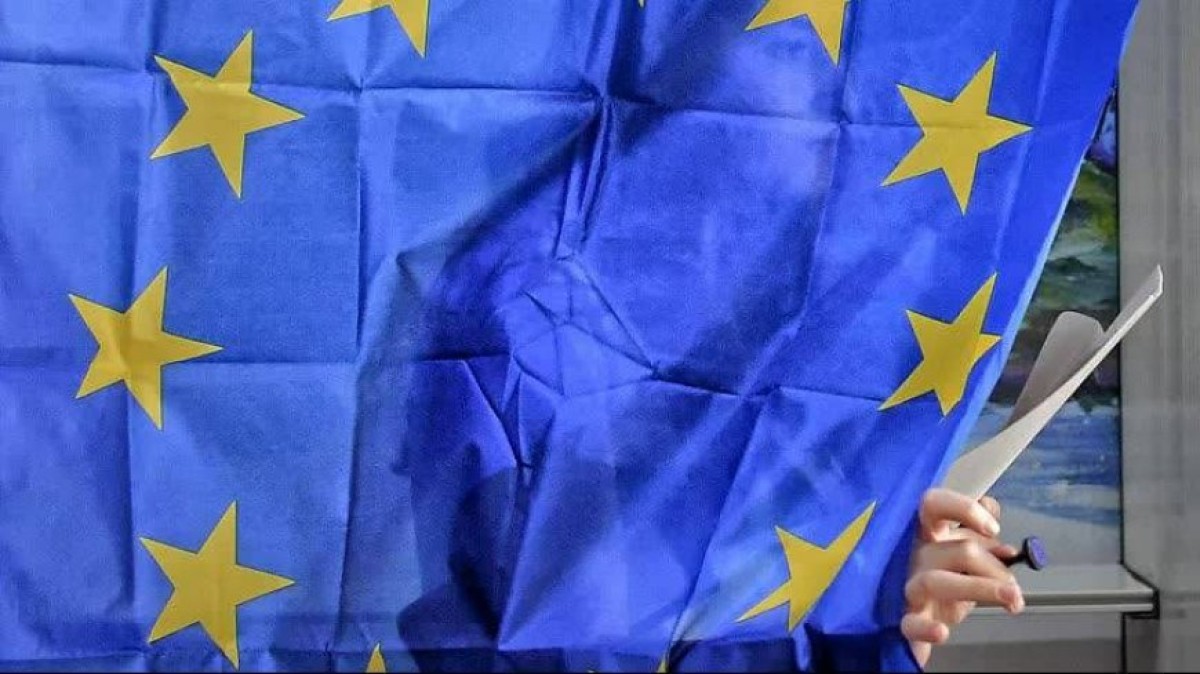 2817
2817
Moral Bankruptcy: What Impact do Israeli War Crimes in Gaza Have on the Upcoming European Parliament Elections?
Moral Bankruptcy: What Impact do Israeli War Crimes in Gaza Have on the Upcoming European Parliament Elections?
By: A. Mahdavi
During the past few months, the Middle East has become a hot topic of discussion in the run-up to the European Parliament elections. The unspeakable war crimes committed by Israel in the besieged Gaza Strip, violating all international laws and conventions, have posed a significant challenge for European governments and political parties. The recent Israeli terrorist attack on the consulate of the Islamic Republic of Iran in Damascus, Syria, marked a pivotal moment in the Middle East's unfolding developments, prompting different responses from major European countries.
In the wake of Israel's barbaric aggression against Gaza, murdering over 35,000 innocent civilians with a complete disregard for international law, European parties have mostly offered symbolic condemnations, seemingly wary of jeopardizing the influential Jewish lobby's support. As a matter of fact, the complex network of pro-Israeli lobbying groups within the European political stage has effectively deterred decisive stances against Israel, fostering a climate of ambiguity and shameful inaction.
Notably, European parties exhibited a dual stance in their response to Israel's assault on the Iranian consulate, opting to condone or overlook the terrorist incident. According to observers, as the European parliamentary elections loom on the horizon, it appears that financial interests and media backing hold precedence over principles of humanity and solidarity with oppressed civilians in the calculus of many European political parties.
However, following Iran’s successful ballistic attack against Israel, dubbed Operation “True Promise,” European Parliament parties rallied to denounce Tehran, underscoring a departure from their professed commitment to neutrality and international law. This inconsistency in their approach, evident in issues ranging from immigration to extremism, underscores a broader trend of selective engagement that has come to the fore amidst the ongoing Israeli holocaust in Gaza.
Moreover, Europe's historical aversion to reigniting religious conflicts with the Jewish community, a chapter long considered closed, has prompted efforts to sidestep issues like Israel's systematic annihilation of Palestinians. However, the sustainability of this approach remains in question, as a policy of silence towards Israel's holocaust in Palestine risks fostering deep societal divisions within European communities, pitting factions against each other on matters of Europe's shaky ground of ethics and its blind allegiance to an apartheid regime.
The hypocritical posturing of European parties has played a pivotal role in exacerbating societal polarization, as concerns about power dynamics and financial imperatives overshadow a commitment to truth and justice. While political factions across the continent endeavor to mobilize voter engagement by aligning with public sentiments on issues like welfare, climate change, and geopolitical relations, a conspicuous blind spot persists concerning the prioritization of Israel over domestic and national concerns.
The wrong narrative crafted by European political elites, which underscores Iran and Russia as imminent threats, serves as a veiled mechanism to bolster support for the Israeli regime and secure more avenues for assistance to Israel's killing machine. However, this narrative fails to fully account for Europe's evolving landscape of public consciousness and the erosion of biased media monopolies, which have empowered European citizens to scrutinize events through diverse lenses and make informed electoral choices.
As the Middle East, particularly the Gaza region, assumes a central role in shaping the trajectory of European politics, the transparency of political decisions and stances adopted by party leaders and governments has become increasingly pronounced. The electorate's heightened awareness and discernment of political chicaneries herald a paradigm shift in the criteria guiding electoral preferences across Europe, underscoring the pivotal role of Middle Eastern developments in shaping our continent's future trajectory.
 2817
2817
Comment
Post a comment for this article